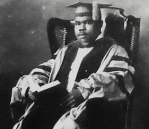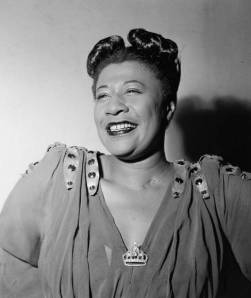THE CULTURE CORNER
________________________________________________________________
“A people without the knowledge of their past history, origin and culture, is like a tree without roots.”
Marcus Mosiah Garvey (1887 – 1940)
Every year in October we celebrate BLACK HISTORY MONTH. Black history is with us every second, minute, hour, week, month and year. PANTHER NEWSLETTER’S CULTURE CORNER will attempt to enlighten you with what they never told you in your history class. Our story will be told right here – So enjoy the journey of clarification.
________________________________________________________________
Blacks in Britain (Part Three)
Not widely known – But true…
In 1663 The Royal Adventurers became the first English company chartered to take part in the African slave trade. Their prospectus declared the company was formed from economic necessity that: “…that the English plantations in America should have a competent and a constant supply of Negro-servants for their main use of Planting, and that at a moderate rate.” The Royal Adventurers reflected the “cream” of English aristocracy – twenty-five percent of the company’s stock was owned by the King and Queen of England, a prince and assorted dukes, earls, lords and knights and other members of the upper-class. The Royal Adventurers soon collapsed and were replaced by The Royal African Company.
In 1668 Oroonoko, Aphra Behn’s popular story of the life of an enslaved African Prince, was published.
In the 1700’s the “black presence” in England had become a reality. Slavery, “the trade in black people and the fruits of their labour” became a lucrative trade, and its fruits were widespread and easily visible especially in London and in the port cities. Read more here…
In September 1700, the Liverpool Merchant sailed from its namesake port to Barbados, delivered 220 slaves and began Liverpool’s participation in Britain’s slave trade. One month later, the Blessing duplicated the process. Prior to this discovery, 1700 may not be Liverpool’s first date of entry in the slave trade, since merchants would falsify records to avoid paying export duties. 1709 was believed to have been Liverpool’s first venture into slave-trading, followed by non-activity until 1730. But in 1718 the owners of the Imploy sued its ship’s doctor when 64 of the 123 Africans onboard died in the middle passage (which cost the owners £1900). Slave ships also departed from Liverpool in 1720 (the Farlton and Filsby), in 1724 (the Elizabeth), and with a probable fifteen sailings in 1726.
______________________________________________________________________
TRIBUTE TO OUR S/HEROES
Baroness Howells of St David, OBE was the first black woman to sit on the Greater London Council’s Training Board; the first female member of the Court of Governors of the University of Greenwich and was the Vice Chair at the London Voluntary Services Council. Baroness Rosalind Patricia-Anne Howells was born in 1931 and was raised to the peerage as Baroness Howells of St David, of Charlton in the London Borough of Greenwich in 1999. Read more…
Cleo Laine has gone on to achieve international fame by continually expanding her talents in a career which spans some four decades. From her modest beginnings as a singer in English dance halls, she is one of the most celebrated singers of our time. Cleo commands a dazzling array of vocal styles and is the only singer ever to receive Grammy nominations in the Female Jazz, Popular, and Classical categories. More here…
Moira Stewart has presented virtually every news bulletin devised since 1981. These include News Afternoon, the 5.40 News, the Six o’clock News, and the Nine o’clock News. Moira has also presented a variety of other programmes on both TV and radio, including the Quincy Jones Story, The Best of Jazz, Open Forum and the Holiday Programme. More…
Mohandas K Gandhi (1869 – 1948): This small frail gentleman inspired the Indian people to fight for independence. He grew up believing in non-violence and respect for all living things. He believed in fasting for peace. India was a colony under Britain for 300 years, but it Gandhi who forced Britain to give up this rich colony through his peaceful, social and political action. Ghandi, later known as Mahatma (Saint), was shot and killed in 1948 by a Hindu fanatic.
Ernest Davis (December 14 1939 – May 18 1963) was an American football running back and the first African-American athlete to win the Heisman Trophy. Wearing number 44, Davis competed collegiately for Syracuse University before being drafted by the Washington Redskins, and then almost immediately traded to the Cleveland Browns in December 1961. However, he would never play a professional game, as he was diagnosed with leukemia in 1962. He is the subject of the 2008 Universal Pictures movie biography The Express, based on the non-fiction book Ernie Davis: The Elmira Express, by Robert C. Gallagher.
Paul Reaney (born 22 October 1944 in Fulham, London) was a long-serving full back with the Leeds United team of the 1960s and 1970s. Reaney wore the No.2 shirt for Leeds and in a team renowned for its hard approach to the game, he more than held his own. Reaney moved to West Yorkshire from London as a child and left school at 15. He was briefly a car mechanic before signing for Leeds as an apprentice, making his debut shortly before his 18th birthday. He impressed quickly and made 35 League appearances in his first season, and was part of the team which won the Second Division in 1964.
Here ends your history lesson for this month.
________________________________________________________________
Log on for more CULTURE CORNER next month and remember…
“Just don’t give up trying to do what you really want to do. Where there is love and inspiration, I don’t think you can go wrong.”
(April 25 1917 – June 15 1996)
“Til next month – Everyting Bless.”
share this:
Related
This entry was posted on February 28, 2011 at 2:30 pm and is filed under Articles, Black British Literature, Black History, News, Newsletter with tags Articles, Black British Literature, Black History, News, Newsletter. You can follow any responses to this entry through the RSS 2.0 feed. You can leave a response, or trackback from your own site.


Leave a comment